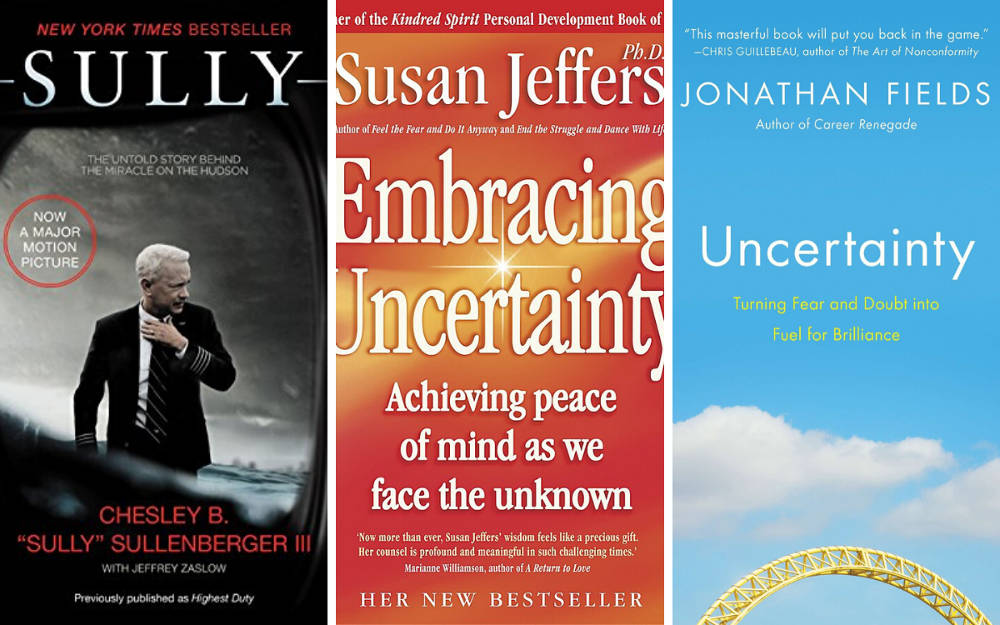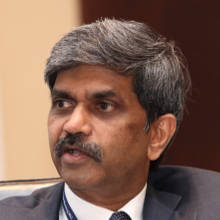The current situation is unprecedented. This is uncertainty of a different order. In this context, I chat with a number of people and I sense three things: Fear, uncertainty and doubt.
Over the course of my career, I have seen that individuals have fear, some sports teams have fear (cricket teams that played the West Indies in the 1980s), but rarely do organisations have fear. Fear is an individual emotion and rarely a collective emotion.
I have chosen three books that inspired me and they address what an employee can do in uncertain situations.
1. Sully, by Chesley B. Sullenberger III and Jeffrey Zaslow
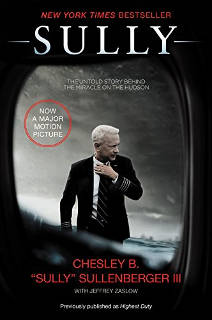
Captain ‘Sully’ Sullenberger was the pilot of US Airways flight 1549 that flew straight into a flock of Canadian geese on January 15, 2009 after take-off from New York. This is a freak uncertain thing anyone can face in any job. Sully had less than 5 minutes to do what he did. He landed the plane safely on the Hudson River, saving all 155 lives on board—and he did all this in 208 seconds.
Why did I choose this book?
This is a story of Captain Sully and his deep fascination with flying from when he was a kid. It is a story of deep dedication to the craft of flying and learning every detail by poring over it, including learning from his teacher the best angle to land on water and remembering that lesson as he landed on the Hudson.
This book is a story of following rules over 40 years, learning and practicing the fundamentals and making an extraordinary decision in the face of an unknown event. The book also details the great attention to detail as he glided the plane onto the river runway.
The current situation is absolutely tough, but each of us has to rely on what we have learnt in the past, stick to the fundamentals where needed, and see the crisis through. It will need a cool head.
This book taught me that “technology is no substitute for experience, skill and judgement”. Each of us will need all three in good measure in the coming days.
2. Embracing Uncertainty by Susan Jeffers
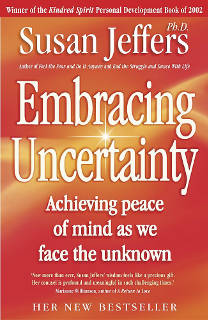
Susan Jeffers was an American psychologist who passed away in 2012. In her lifetime Jeffers helped scores of people overcome their fears and move ahead with purpose and confidence.
Why did I like this book?
Jeffers argues in the book that we all are innately control freaks and we want to control things we know we cannot control. She argues that nobody knows what will happen and nothing in life is certain.
However, for many people life’s uncertainties can be a constant source of worry. It could be about money, about a career, about children, anything. Jeffers says that life need not be a series of what-ifs, even though that’s what we naturally gravitate to.
She argues that by embracing life’s uncertainties, we have the power to transform ourselves and lift the burden off our shoulders. That’s when life becomes good.
We have an illusion that we are masters of our destiny. This is farthest from the truth. We have got to this illusion because of the many management books that tell us we are in control and a host of consultants who give us catchy models and phrases.
Jeffers gives us 42 exercises in this book to deal with uncertainty. I will give you a few that I remember:
- Scissors in the wind: She asks us to keep scissors around us to cut our expectation and attachment. Many managers have an entitlement attitude and get disappointed when things don’t go their way. The scissors are a good way of stepping back from things you don’t control.
- I can learn from this: This is the ability to reflect on every situation and ask what have I learnt from it, as opposed to what have I gained or lost from the situation. Not many executives have this reflective ability.
- Collecting heroes: This book shares lessons of heroes from concentration camps, etc.
- Give back to others: In a way, in every uncertain situation, can you help someone win? In this case, maybe what can we do for the really impacted?
Jeffers quotes Buddhism in this book. She says that Buddhism has taught us that emotions of anger, greed, jealousy, etc. happen because of our attachment to something. Buddhist masters used to sleep with an upturned cup of tea next to their bed every night, and turned the cup upside down every morning when they woke up. In a sense, saying life is uncertain and I am grateful for life. Surrendering to uncertainty, she argues, gives you a sense of relief. So, stay cool.
3. Uncertainty by Jonathan Fields
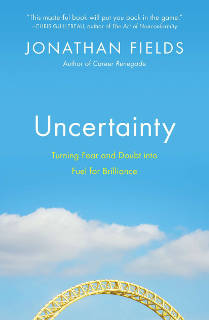
Jonathan Fields had a six-figure salary, gave it all up, took up a $12 per hour job as a personal trainer, and opened a yoga centre a day before 9/11. What a perfect storm! He thrived to tell the story via this book. He starts by saying that without uncertainty there is no change.
Why did I like this book?
Fields spoke to many creative people and CEOs as background for this book. He argues that fear and doubt, if used well, can feed into creative brilliance. In his research he recognised that creative people had developed frameworks in their minds to repeatedly fly with fear.
Fields fuses learning from technology, cognitive science and ancient awareness in writing this book. He asks us to meet uncertainty, rethink it as energy, and succeed.
He hypothesises that uncertainty is a combination of uncertainty, risk of loss, and exposure to criticism. A big part of uncertainty can be contained if we are open to feedback and criticism. Without this we will always deal with uncertainty in the wrong way.
Dealing with uncertainty requires routines and life rituals. He describes life rituals as food habits, food timings, and having a daily schedule. He argues that willpower in individuals is limited and the only way is to turn as many activities into habits as possible. When we turn activities into habits, it releases our time to deal with uncertainty.
One ritual that author Tony Schwartz practices is to spend a maximum of 90 minutes on an activity. That gives him all the energy to give it his best.
Dealing with uncertainty needs mentors, champions, heroes and friends. Champions are defined as people who are invested in you and your success.
Fields asks us to practice AT—Attentional Training, a form of mindfulness. Dealing with uncertainty needs an individual to shift from a fixed mindset to a growth mindset. A fixed mindset in an individual forces them to see their talent and abilities as a given. A growth mindset individual recognises that talent and character improve with effort and hard work.
Dealing with uncertainty needs one to focus on your main motivations and the ability to reframe the context at hand.
[Editor’s Note: If you are interested in buying a personal copy immediately, Kindle editions are available for all three.]
